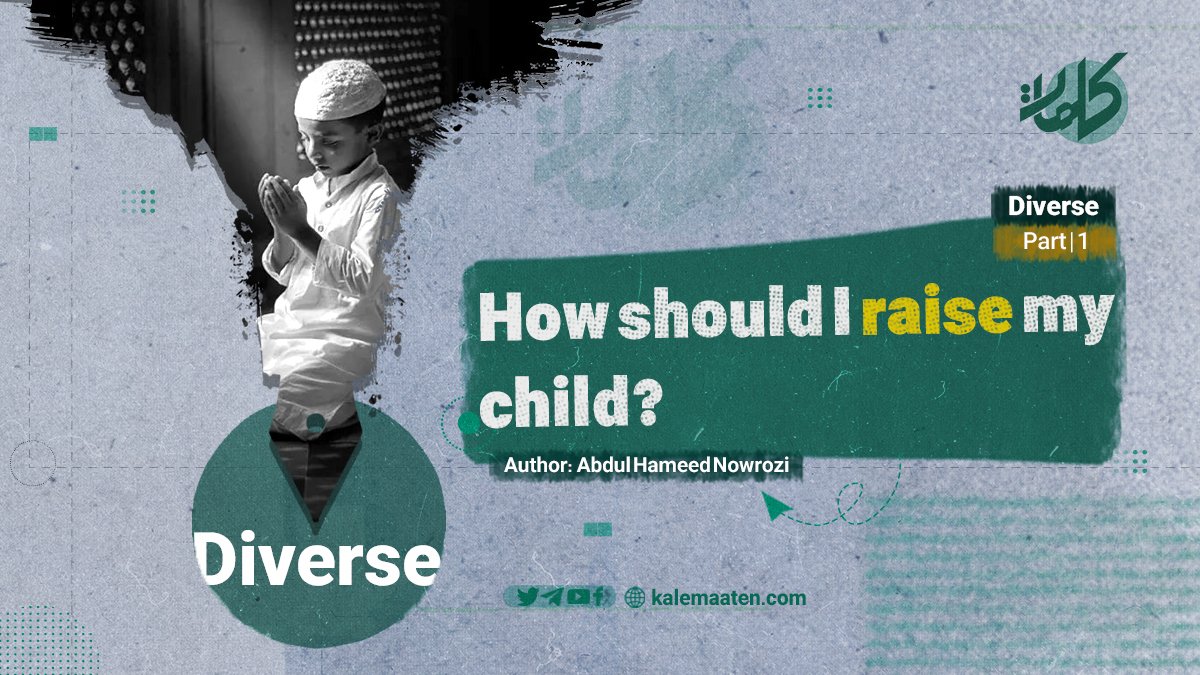
Author: Abdul Hameed Nowrozi
How Should I Raise My Child? (Part One)
Abstract
Raising a child is one of the most important factors emphasized by the Holy Quran and the Prophet of Islam, peace be upon him. In this regard, parents play a key and fundamental role. In addition to the physical education and growth of their children, they should also pay special attention to their spiritual and intellectual development, planning for their spiritual education from a very young age in accordance with the morals and religious principles of Islam.
The history of human creation shows that with the creation of man on earth, religion was also born, and prophets have always been busy guiding and leading people. Education is of utmost importance in Islam. If parents in a family can raise a Muslim and successful child through education, and a teacher can nurture someone, it is as though they have revived the whole world.
What you will read in this series of articles are tips on raising children based on the guidelines of the Qur’an, Sunnah, and the wisdom of our elders and experienced thinkers. May it serve as a step toward creating a generation of believers.
Keywords: child education, upbringing, politeness.
Introduction
Commonly heard phrases suggest that “a certain government is a strong and powerful government,” or “a certain nation is a powerful and high-ranking nation,” implying it is not possible to contest such a government because of its extraordinary strength. One of the supports of these powers is economic, military, scientific, and cultural strength; however, the most important support is human strength. Human power is the foundation on which all other forces rely. A weapon, no matter how advanced or versatile, is worthless until someone uses it effectively. Likewise, possessions and wealth are meaningless without individuals to use them properly.
We observe that other nations pay special attention to the preparation and upbringing of their children, providing facilities to help them grow and serve well. As Muslims, it is proper to focus on the education of our children so that they reach the level of goodness that the first nation of Muhammad, peace and blessings of Allah be upon him, attained. The goodness that Allah describes as: «كُنْتُم خَيْرَ أُمَّةٍ أُخْرِجَتْ لِلنَّاسِ تَأْمُرُونَ بِالْمَعْرُوفِ وَتَنْهَوْنَ عَنِ الْمُنْكَرِ وَتُؤْمِنُونَ بِاللَّهِ…» (You are the best nation that has appeared for people; you command good deeds and forbid bad deeds, and you believe in Allah.)
Raising a Child Isn’t Solely the Duty of a Teacher
The religious education of children is the primary concern of Muslim families and parents, as well as teachers. It is not only the responsibility of teachers and trainers to nurture our youth with character and religious values; parents themselves are tasked with fostering self-belief, belief in Allah, self-confidence, piety, chastity, honesty, altruism, and self-sacrifice in their children.
You must sow the seed of “faith” in fertile soil;
You should plant the sapling of “faith” in the garden of your heart.
Dear fathers and mothers! Opportunities are fleeting; yesterday’s child becomes today’s teenager, and yesterday’s teenager becomes today’s youth. In the meantime, what have we done for them? What knowledge, manners, upbringing, and ethics have we instilled? The smoother, more compassionate, and caring your behavior and interactions with your children are, the more trust you will gain, and your ability to positively influence their thinking and psyche will increase. Lifetime is an opportunity to “sow” and “harvest.” Future builders develop and reach perfection through these programs, care, and education. If we are concerned about our reputation and the future of our children, we must not take their religious education lightly. Otherwise, we are responsible for any shortcomings.
Continues…


